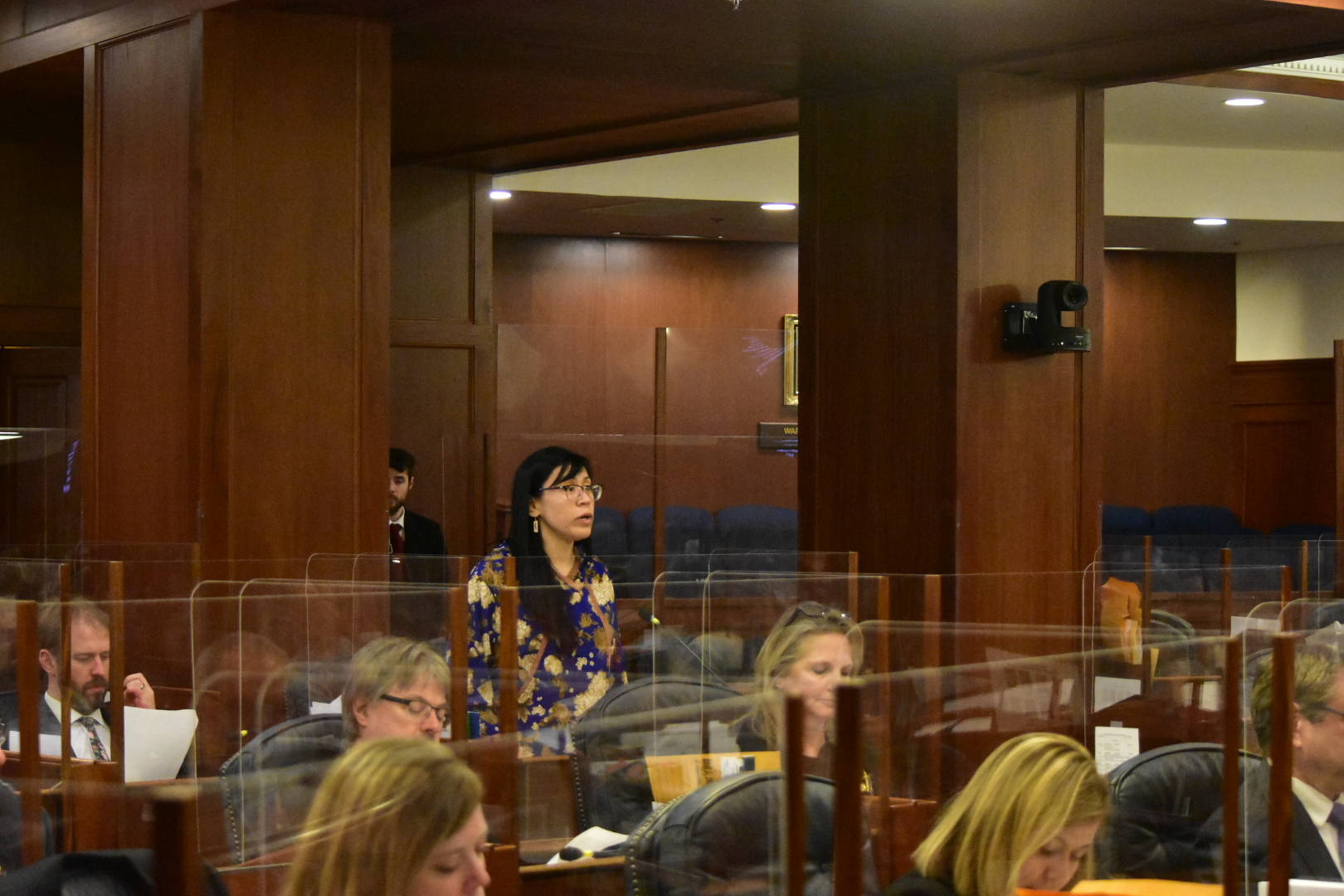Delays in the Alaska State Senate meant the state’s budget bill wasn’t debated on the floor until Wednesday evening, meaning it would likely be several more days before the Legislature could finalize a budget.
By 5 p.m. Wednesday, the Senate had not yet begun debating the omnibus budget bill, a combination of operating and capital budget bills that still needs to be sent back to the House of Representatives for concurrence.
Once the budget is passed, it’s likely both bodies with appoint members for a conference committee, which will negotiate a compromised version of the bill on behalf of their respective bodies.
However, the Senate Finance Committee incorporated elements of the operating budget bill passed by the House last week, and the final version of the budget caught some lawmakers off guard.
Speaking to reporters Wednesday, Senate Finance Committee co-chair Bert Stedman, R-Sitka, said a few more days might give lawmakers time to consider the budget.
“It’s a big budget with a lot of moving parts,” Stedman said.
Republican senators spent most of Wednesday in caucus, delaying the Senate’s floor session until the afternoon. The Senate’s floor session was initially scheduled for 10:30 a.m. but didn’t actually meet until just after 1:30 p.m. Senators spent about 30 minutes in session before recessing so Republican senators could meet in caucus again.
Democrats in the Senate Minority balked at the final version of the budget as well, with Senate Minority Leader Tom Begich, D-Anchorage, saying minority members felt pushed out of the budget process.
“We thought we had an understanding and yesterday that understanding broke down,” Begich said.
Begich said the minority had worked well with the majority and proposed items they felt had statewide appeal. But disagreements over unemployment insurance and tourism revitalization funding caused a rift, Begich said, in the unity displayed in the Senate for most of the session. The minority was willing to use its six votes as a bloc to impact the budgeting process, Begich said.
Democrats submitted a number of amendments for a floor vote Wednesday but Begich said, they were not given a fair hearing in the finance committee. Despite the disagreements, Begich said he was optimistic about the situation.
[With more time, lawmakers take step back on budget]
Stedman said it was normal for the minority to have last minute requests for the budget.
There were only nine items on the Senate calendar — the House had 22 — but senators weren’t able to get to the budget bill until late in the day.
The Senate Finance Committee incorporated the contents of state’s the capital budget into House Bill 69, the operating budget bill passed by the House last week. That bill and the state’s mental health budget bill are both allowable under the call of the special session.
In addition to the budget bills, Dunleavy placed his three proposed constitutional amendments and the Alaska Permanent Fund dividend. The Senate Finance Committee added an amendment to the omnibus budget bill allocating a PFD of $1,000.
In a statement Monday, Senate President Peter Micciche, R-Soldotna, said disagreements between bodies on the budget bill would likely be settled in conference committee and would require both parties to compromise. Micciche said he believed lawmakers would be more effective if they finish business in Juneau and consult constituents on the governor’s proposed amendments.
“We plan to have regular organic conversations over the interim, hold committee meetings, and build the support necessary for passage of a comprehensive fiscal plan that has a much better chance of success in August, versus having no chance at all in May,” Micciche said.
Dunleavy called a second special session to start Aug. 2, for lawmakers to allocate American Rescue Plan Act money, discuss the proposed constitutional amendments and consider new revenue sources for the state.
While the Senate was delayed for most of the day the House passed over a dozen bills Wednesday, some of which will be sent on to the governor’s office. House members met at 9 a.m. Wednesday and aside from a break for lunch were in floor session for most of the day.
Among the legislation passed Wednesday was a bill for the state to recognize Alaska’s 229 tribes already recognized by the federal government. Roughly the same bill passed the House last year but wasn’t able to make it to the Senate before the Legislature adjourned early due to COVID-19.
This year’s regular session has ended, meaning the tribal recognition bill and others not on the governor’s call for special session will have to wait until next year for consideration in the Senate. But lawmakers will be likely staying in Juneau for at least a few days more to finalize the state’s budget.
Contact reporter Peter Segall at psegall@juneauempire.com. Follow him on Twitter at @SegallJnuEmpire.

